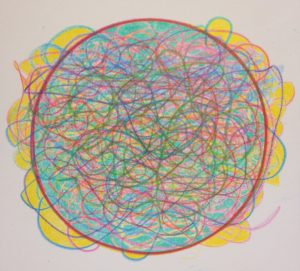I am a Christian. At many times in my life I have been blessed by Muslims and by Islam. I would like to share that blessing. The full series of reflections may be found here.
The fifth blessing is revelation.
Christians and Muslims share a common belief that God enters into the sphere of human existence through divine revelation. But we hold very different understandings of how that revelation comes to us.
For Christians, Jesus of Nazareth reveals God in his life, death, and resurrection. Jesus is God living among us in our very being. This is a difficult teaching, one that defies logic and seems to contradict the monotheistic worldview that Christians share with our Jewish and Muslim brothers and sisters. Indeed, the thought that the immutable God would take human form, suffer, and die is blasphemous to many. Paul himself acknowledges this, calling Christian belief “a stumbling block” and “foolishness” in his letter to the Corinthian church (1 Corinthians 1:23).
For Muslims, the Qur’an is the final revelation of God to humanity. Received through the angel Gabriel by the Prophet Muhammad, the Qur’an is understood as a direct recitation of God’s message. In the Islamic view, Muhammad is the last of a lineage of prophets–including Jesus–who have brought a consistent message of God’s mercy and justice to the world throughout history (Sura 41:43).
Both religions teach that they are divinely revealed. Both proclaim that there is only one God, a God who is just and forgiving. Both admonish adherents to build a just community on earth, as a reflection of the divine will. Both center on the call to give our lives to God.
But Christianity and Islam do not agree on the form of this revelation, and herein lies all the difference. Muslims do not accept the divinity of Christ, and Christians do not accept the Qur’an as divine revelation. In agreement about much else, this essential point of disagreement divides the two faiths. This disagreement is not merely intellectual or theological. It has deep consequences according to these two diverging world views, defining our understanding of God, of what a faithful life is, of what judgment awaits us at the end of days, and of our hope for salvation.
And so, though siblings who bear a close resemblance to one another, like siblings a fundamental difference separates Christians and Muslims.
+++
The consequences of this difference have been severe.
The legacy of violence–of mercilessness and injustice–built off of this division is continuous and real. And like fights between siblings, it is mutual.
This is a terrible paradox: that, although based on revelations we believe to come from a just and merciful God, we would nonetheless act with such mercilessness and injustice toward one another.
Much of this conflict, manifest over centuries in many parts of the world, derives as much from economic and political causes as religious ones. But the religious differences between us exacerbate our willingness to hurt one another, allowing even people of deep faith and learning to regard one another as inferior and undeserving of the full measure of human respect. This is serious. It is dangerous. As great a theologian and mystic as the Renaissance Christian poet Dante dismissed Muhammad’s spiritual leadership as fraudulent and schismatic, condemning him to the Eighth Circle of Hell with the sowers of discord in the Divine Comedy. Arguably the greatest work of Western literature dehumanizes the Prophet of Islam. While Dante did not incite a crusade himself, his view only furthers a pervasive and damaging perspective that Islam is simply incorrect, worthy of violent rebuke, and rejected by God and faithful Christians.
Let us consider the results of the views we hold.
+++
But have we not been taught to do unto others as we would have them do unto us? (Luke 6:31; Surah 4:36) Why, however stark and absolute our differences may be, do we presume to condemn, when our teaching is that God alone is judge (James 4:12; Surah 99)? Do we wish the same judgment for ourselves that we so willingly pass on others? Because we surely invite others to view us in the same way that we view them.
Might we find instead in our differences, however stark and absolute they may be, a gift?
+++
When I sit with friends who are Muslim or with scholars of Islam to discuss faith, I have two experiences at one and the same time.
The first experience is of disagreement. There is much in Islamic belief and practice that I do not believe, and much that I do not understand. I am not a Muslim. I do not live or believe as faithful Muslims do. As we speak, it is clear to me that there is much shared with which I disagree.
The second experience I have is of resonance. Although I am not a Muslim, and although my beliefs are distinct from Islamic teaching, I nonetheless feel a reverberation between those with whom I am speaking and myself. It is not that we are in agreement–we are often in deep disagreement–but I can feel nonetheless a connection between us, unforced and reverent.
This is not an erasure of the distinctions that separate us. On the contrary, I often leave these conversations in stronger resolve about my own beliefs.
But there, in that tension between disagreement and respect, is something more, between us, something sacred, a warmth, a kinship of minds and souls.
+++
This does not resolve our differences. This does not answer our most basic theological disagreements. Rather than merging our religions into one broad humanism, it tends rather to confirm our different religious identities.
This does not spare us whatever the judgment of God will be, when we face the Gracious, the Merciful.
But it spares us mutual condemnation today, here with each other.
And it allows us to share with one another what we believe has been revealed to us. It allows us to share, in the best spirit of our faiths, what we believe our faiths ask us to share with everyone, that we all may know God in grace and truth.
It allows us to share the message in a manner commensurate with the message. Love preached through condemnation does not communicate love. Love communicates love.
It allows us to gain from the challenge we offer one another, rather than to destroy one another.
Somehow this seems right, for two faiths that believe God created us for life in the presence of a gracious and merciful God.
+++
I receive from Islam the gift of its revelation, a gift which both challenges and strengths the revelation I have received in my own faith.
If I listen to caricatures of Islamic belief, it is easy for me to dismiss them as unbelievable and wrong. But if I listen–really listen–to what my Muslim brothers and sisters have to share–as I want for them to listen to me–I must admit that I am challenged by their message.
One of the deep and abiding witnesses to the revelation of God in the Qur’an is the preeminent poetic beauty of the Qur’an itself. Christians who dismiss this as irrelevant not only fail to recognize the genuine beauty of Quranic verse and the art of Quranic recitation; we also fail to acknowledge that beauty is a way that God comes to us in this world. We risk closing ourselves off to God, present to us in beauty. Muslims regard the Qur’an as a miracle, and its beauty attests to its miraculous nature.
Just so, the counterpoint offered by Christianity is at once profoundly different and profoundly parallel–that in the life of Jesus, humility, poverty, ugliness, and suffering are also ways God comes into our world to serve us all, regardless of privilege or rank, and especially those rejected and cast out.
Whether either of us is right, or if we are all deluded, only God knows. But what is true is that, in the beauty of the Qur’an and in the humiliation of Jesus, we can share with one another a vision of God that is radically different, challenging and disruptive to our respective beliefs, and strangely related.
+++
Sharing our revelations, as gifts, rather than as a competition to the death in this life and the next, calls us to our best selves. In so doing, we live our faiths more fully.
Could it be that this is what God prefers?
At the very least, holding our revelations beside one another, as gifts to offer one another across our differences, in unresolved dissonance and resonance, helps us live a little more as siblings should.
May God guide us with grace and mercy.
Written at the conclusion of Ramadan and the commencement of Eid al-Fitr, July 5-6, 2016.
And during the week in the United States that saw the observance of the Fourth of July, and the deaths of Alton Sterling, Philando Castile, and Dallas officers Brent Thompson, Patrick Zamarripa, Michael Krol, Lorne Ahrens, and Michael Smith. Several of the officers and the Dallas shooter, Micah Johnson, had served in the US military in Iraq and Afghanistan.


Leave a Reply